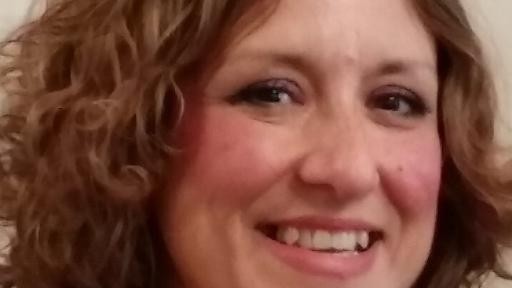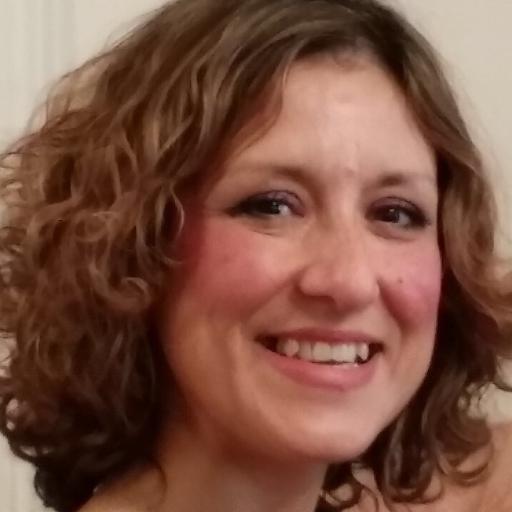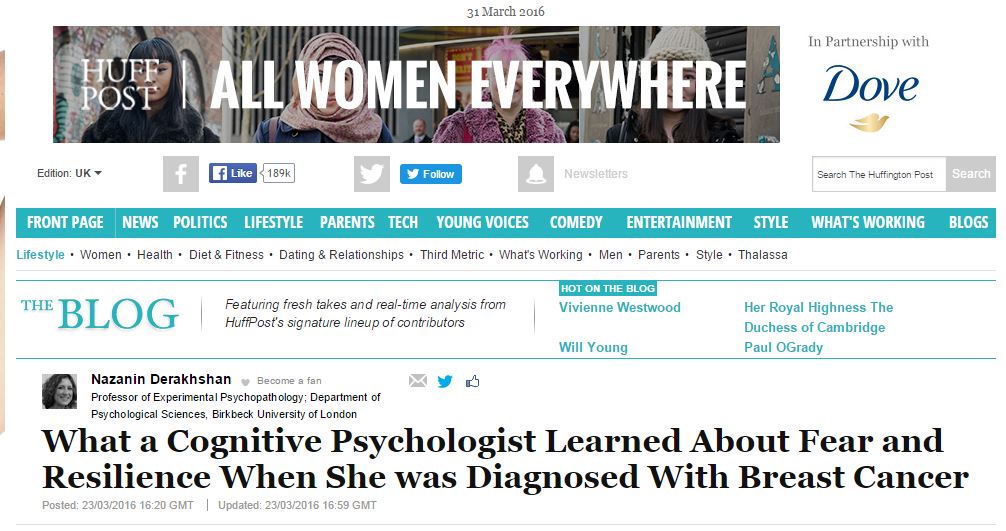Dr Clare Press reflects on her parents’ encouragement of her inquisitive mind, and her support for measures to increase the representation of women in science
Tell us a bit about who you are in a few sentences.
I’m a Senior Lecturer (Reader from October) in the Department of Psychological Sciences, and I’ve been faculty here since 2012. I’m also Assistant Dean for Research for the School of Science. I run the Action Lab where we study questions relating to how we move around and perceive our world. We look at how someone behaves (e.g., close monitoring while they pick up a cup or press a button), and what they report seeing or hearing, and relate this to what is going on in the brain to allow them to act or perceive. Neither action nor perception are simple jobs for the brain even if they seem effortless to us. Once we understand how these systems work we can apply this understanding to individuals with various conditions who struggle with these basic tasks, to understand what may be different.
for Research for the School of Science. I run the Action Lab where we study questions relating to how we move around and perceive our world. We look at how someone behaves (e.g., close monitoring while they pick up a cup or press a button), and what they report seeing or hearing, and relate this to what is going on in the brain to allow them to act or perceive. Neither action nor perception are simple jobs for the brain even if they seem effortless to us. Once we understand how these systems work we can apply this understanding to individuals with various conditions who struggle with these basic tasks, to understand what may be different.
What has the lockdown period taught you?
That I am quite happy to be at home. I like my family (most of the time), enjoy my job, keep up with other friends and family over video, and I miss the other parts of my previous life less than I expected. Of course we need the labs to be up and running again as soon as possible but I can imagine working from home more once the offices are open again. I have found the period painfully exhausting, because we have three young children (ages 5, 3, 3) who have been ‘locked up’ at home with us. But if I look past the exhaustion and the fact I’ve had far too much to do, I’ve generally been quite content with it in a way I may not have imagined.
A person is either scientific or religious in their outlook…What are your thoughts on this?
I think the statement is too simplistic. Both science and religion aim to answer life’s big questions, and it is sometimes speculated that once science has an answer to a question there is no need for religion anymore. However, science is unlikely ever to answer everything because it requires that the system we are trying to understand is of a complexity we can fathom. This is unlikely to be true of everything as human intelligence is limited. We cannot comprehend limitless time or space, for example. Many also believe that higher powers relate to the underlying causes of phenomena understood via scientific methods (e.g., natural selection). The element of religion that consists of moral codes for life is of course not at odds with science either.
What or who influenced you to enter the field of Science?
I have always loved science, which I attribute mainly to my parents fostering such an inquisitive character and excitement to understand how the world works. They were both passionate about science and clearly enjoyed explaining underlying causes as I grew up. They did not believe in ever telling a child ‘because I say so’, believing that children should be discouraged from simply accepting what they are told and that children are interested in understanding and interrogating how things / society works. The fruits of their labour were clear by the time I was 5, when I told my grandma it was implausible that we breathed all the time – that may be true for her but certainly not me, and surely I would notice if I did. So it was definitely my parents who generated my curiosity in understanding how the world works, and I was certain by mid teens that I would study psychology or physics at university.
What have your experiences been, as a woman in Science, throughout your career?
I am passionate about science and would not trade the career. In few other professions do you have the freedom to ask whatever questions you fancy and the constant discovery is especially stimulating.
99% of the time I do not think of myself specifically as a woman in science. Being a scientist is a large part of my identity but being a woman less so. The data certainly suggest that people perceive me differently because I’m a woman. To use a collaborator’s words, “(I) am a short, blonde woman who laughs a lot and wears cardigans and jeans”, which will mean implicit biases stacked against me. For the most part I feel respected by people in my field, but I will not know if anyone secretly ascribes my successes to collaborators! I’d say my everyday experience is one where I’m perfectly at ease with my treatment as a woman, but at the daily level I am largely surrounded by people who have chosen to work with me (in my group or in collaboration).
I occasionally notice treatment where I wonder whether life would be easier if I completely fitted the typical male scientist mould. For instance, without checking my background, people have occasionally explained to me – in great detail – theories and findings relating to my own expertise. The classic ‘mansplain’ – and I am without a doubt that this happens more to women. Some flag work from my lab, linking it only to male co-authors and not me. Not frequently though. With particular instances of behaviour you can rarely know the true underlying reasons so I try not to dwell on it. However, there is serious work to be done in overcoming these biases given we know most people hold them. It will presumably take a long time for implicit biases to disappear. They follow centuries of assumptions that men are better at science and structures resulting from those assumptions – where fewer women enter science, and when they do, they don’t always get the credit they deserve. I therefore strongly support measures aiming to counteract these biases, e.g., approximately equivalent ratios of men and women for conference presentations and grant awards. At the moment I see these as measures to counteract the belief biases but that changes to the beliefs themselves will take longer. However, we can hope that with time – if insightful women are equivalently represented in the highest positions – the biases will reduce and ultimately disappear. There is an extensive focus in universities now on these initiatives, especially given Athena Swan. I think it’s important to remember that the aim is never Athena Swan itself, but facilitation of the scientific enterprise by having all of the best brains onboard rather than a subset.
Einstein himself has credited a woman with helping him to formulate his general Theory of Relativity. Yet history has shown that female scientists have often been overlooked for their contributions to science, with men often receiving the credit for major advancements. Tell us about a woman in Science who we should know about.
My PhD supervisor, Prof Cecilia Heyes, is outstanding. She is the perfect role model of a scientist, preoccupied by the generation of empirically testable theories of cognition and slotting together all the pieces of the empirical jigsaw. She thinks long, hard and deeply about any problem, and carves theoretical reasoning at appropriate joints that can be interrogated via scientific methods. She also provides the perfect role model of a PhD supervisor. She didn’t appear to see PhD students solely as a pair of hands to help pursue her own endeavours, but people she should properly train in the skills of academia. She spent hours with us each week debating theoretical nuances and passing down her theoretical wisdom, as well as explicitly encouraging challenge. She says she attracted students who enjoyed that element of science, but the atmosphere was also one where every view was given time and deconstructed. She gave swathes of time to training us how to write and give talks – e.g., always listening to dry runs before conferences – and told us she would be a mentor for life upon completion. I lucked out having a supervisor who was both so sharp academically and so nurturing, and think Celia should be celebrated on both of these dimensions.
This month marks 100 years since the birth of our very own Rosalind Franklin. How far have women come since then, in terms of their contribution to the field?
Prof Angelica Ronald and Dr Emma Meaburn, both from Psychological Sciences, have recently been running events inspired by Rosalind Franklin – highlighting many of the particular contributions of women to science. Rosalind Franklin is a good example of the fact that women have been making huge contributions to science throughout history, but perhaps not always receiving due credit. Therefore it may make more sense to speak of changes in how women are treated. Certainly explicit biasing against women is unacceptable these days, but implicit biases are much harder to address.
What more can be done to encourage more young girls and women to become scientists?
I assume this will partly require developing a passion for science in girls from infancy – as with boys. Encouraging them to search for answers and not being afraid to challenge what they hear. We may think society is now more aware of biases in the way we raise children but it doesn’t always translate into behavioural change. Some teachers and nursery staff widely talk about particular activities that will appeal to the boys or girls, without thinking about the repercussions of their statements. I was told during maths at school that I would likely find 3D geometry more difficult due to being female (!). It just irritated me but assume many may be discouraged by this. We need to watch how we raise children and the beliefs we engender with our comments.
It is also important explicitly to promote science to girls and women. For instance, Prof Essi Viding at UCL has received a Royal Society award to raise the profile of women in STEM with workshops and other initiatives aimed at schoolgirls. These initiatives aim to address the reasons for girls dropping out of science during A level years – i.e., partly low confidence and partly because of concerns surrounding working in a male dominated area. Additionally, I am part of the ‘SOFAR’ network – led by Dr Trudi Edginton and Dr Gilly Forrester – dedicated to supporting women in research through their careers by providing expertise, advice and support through mentorship. If we provide girls and women with good role models and good support, then with time men and women will become more equivalently represented.
What do you see as the most significant impact of science on the world?
At the moment, the development of vaccinations against infectious diseases.
If you could be doing anything else, career-wise, what would you be?
At school I told the careers adviser that my two career deal-breakers were that it should be predominantly maths-based and involve largely working by myself. Their data-crunching exercise came back with the answer that I should be an Actuary. I disagreed, and in fact I can only really imagine working in another academic branch of science! Very unimaginative of me. I should also point out that I especially enjoy many of the social elements of academia now, even if the idea of lecturing to 250 students would have made me rule out this profession in my teens!






